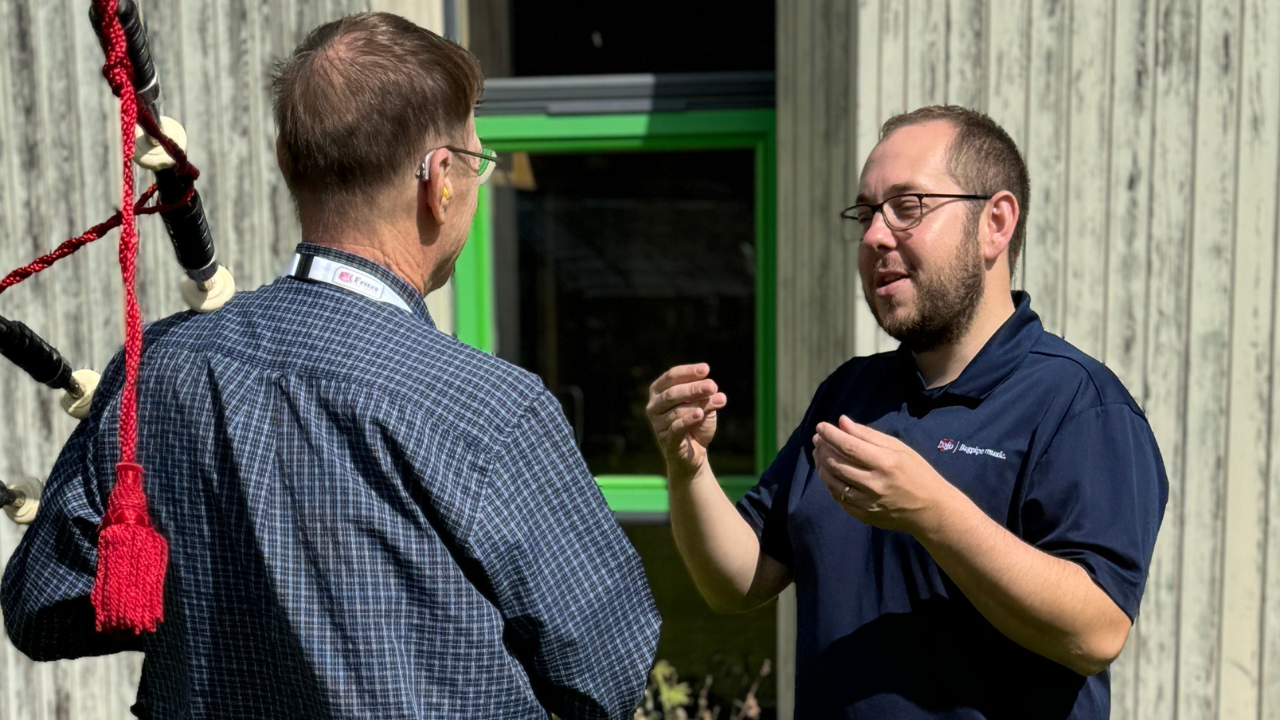Permission to Be Wrong: The Secret to Becoming a Better Piper
Apr 22, 2025
Fallibilism is the simple but powerful idea that no belief or method is ever beyond question. In other words, we could be wrong—even when we’re sure we’re right.
It’s a concept rooted in philosophy, but it has big implications for creative pursuits like music. Especially bagpiping.
Why? Because piping is full of rules. Full of tradition. Full of “this is how it’s done” attitudes. And while tradition has its place, an overreliance on fixed ways of thinking can shut down curiosity, creativity, and even confidence.
Fallibilism opens the door to a more flexible, open, and ultimately rewarding approach to learning and playing.
The Trap of Tribalism and Gatekeeping in Piping
Bagpiping communities, like any tight-knit group, can fall into tribal thinking. Certain bands, instructors, or schools of thought become gatekeepers of “the right way” to do things. If you step outside those norms? You risk being labeled a hack—or worse, ignored altogether.
This kind of rigidity can discourage innovation. Worse, it can make learners feel like they’re never allowed to make mistakes, ask questions, or explore. That’s where fallibilism is a game-changer. It's a true beginner's mindset, saying: It’s okay to challenge what's been passed down. It’s okay to get it wrong while trying something new.
Tradition doesn’t need to be a prison. With fallibilism, it becomes a foundation you can build on—rather than walls that box you in.
Learning to Learn Differently
When you first pick up the pipes, it’s natural to cling to the rules. The Green Book. Your teacher’s method. The classic settings of old tunes. And for good reason—those resources work. They’ve stood the test of time.
But fallibilism invites you to go a step further. Aim to absorb what you can, but don’t assume it’s gospel. Experiment. Question. Notice what works for you. If you try a different gracenote combination or tweak your embellishment timing and it sounds better—that’s valuable insight. You’re not “breaking the rules,” you’re adding to your understanding.
Mistakes Make the Music
Here’s the truth: fear of being wrong is one of the biggest obstacles to growth in piping. You might worry about judgment from judges, bandmates, or the piping armchair critics in the social media peanut gallery. But every piper who’s ever done something meaningful has taken a risk.
The evolution of the medley event in pipe band competitions? That was built on pipers challenging norms. Piobaireachd interpretations? They're continually evolving, and there's no one "right" way to play any piece. Even tuning preferences shift with time, taste, and technology.
Fallibilism encourages you to try things, fail, and try again. That’s not rebellion—it’s progress.
Why Critique is a Good Thing
Part of embracing fallibilism means embracing constructive criticism. Not the snarky kind. The kind that helps you grow. That means learning to give and receive feedback without defensiveness. Because if nothing is above being questioned, then you don’t have to be perfect to be valid.
One piper might prefer a sharper, punchier birl. Another might go for flow and subtlety. Both approaches can work, depending on the context—and each has something to teach the other.
Fallibilism Is About More Than Bagpipes
At its core, fallibilism is about humility. It’s the willingness to say: “I might not have it all figured out yet.” That mindset doesn’t just make you a better piper—it makes you a better learner, a better teacher, even a better bandmate.
It also helps you deal with the bigger stuff—like conflicting opinions, changing traditions, and your own self-doubt.
Bagpiping is a living tradition. And living things grow. By embracing fallibilism, you allow yourself to grow with it. You create space to be both respectful of the past and excited about the future.
So pick up those pipes. Try that tune your own way. And when someone tells you “that’s not how it’s done,” smile, say thanks—and keep playing.
Because fallibilism doesn’t mean throwing out what came before. It means believing that the journey of learning, unlearning, and evolving is what makes the music truly alive.
Check out this "amateur philosophy hour" of our Dojo Conversations podcast, where we dive into the concept of fallibilism and how it applies to the piping world.
Stay connected - subscribe to our free Weekly Digest!
Get bagpipe knowledge delivered to you every Monday! Tips and tricks, podcasts, special offers, and more.
We hate SPAM. We will never sell your information, for any reason.



